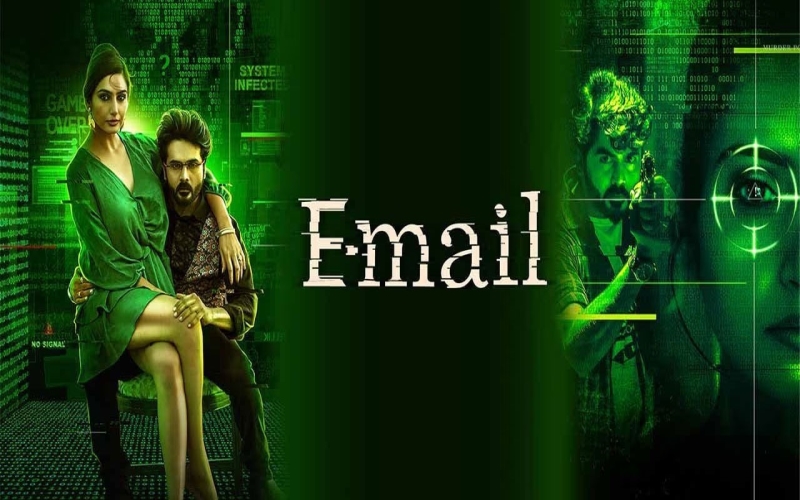E-mail Movie Review: Unraveling Connections in a Digital World
E-mail is a contemporary drama-thriller that delves into the complexities of digital communication, personal relationships, and the consequences of secrets revealed through the virtual world. Directed with finesse, E-mail offers a gripping narrative that examines how seemingly harmless online interactions can unravel lives. With a blend of suspense, emotional depth, and thought-provoking themes, the movie keeps viewers engaged until the very end.
Plot Overview and Storytelling Style
The plot of E-mail revolves around the protagonist, a young professional whose life is disrupted by a series of anonymous emails. What initially appears to be an innocent exchange soon spirals into a web of intrigue, betrayal, and deception. As secrets from the past surface through these emails, relationships are tested, trust is shattered, and the protagonist finds themselves on a quest to uncover the sender’s identity.
The narrative structure is designed to keep the audience guessing, with each email revealing a new piece of information that adds layers to the mystery. The film blends present-day events with flashbacks, providing insight into the protagonist’s past and the decisions that have led to the current situation. The director maintains a steady pace, with well-timed plot twists and emotional beats that enhance the suspense.
The storytelling style is dynamic and immersive, capturing the growing tension between characters and their inner conflicts. The use of digital communication as a narrative device adds relevance to the plot, making it relatable in today’s internet-driven world.
Performance and Character Development
The lead actor delivers a captivating performance, portraying the protagonist with nuance and emotional depth. Their journey from confusion and vulnerability to determination and resilience is both believable and engaging. The character’s emotional turmoil, triggered by revelations from the emails, is portrayed with subtlety, making the audience empathize with their struggle.
The supporting cast enhances the film with strong performances, adding complexity to the narrative. Friends, colleagues, and romantic partners each have their own secrets, creating a tangled web of relationships that keeps the audience invested. These characters are not mere props but essential to the plot’s progression, as their interactions with the protagonist reveal hidden layers of the story.
The antagonist, though not physically present for much of the film, looms large through the anonymous emails. This unseen villain adds to the tension, as the audience, like the protagonist, is left to decipher motives and identities. The gradual unraveling of the truth makes the character arcs more compelling, with each individual undergoing a transformation by the film’s conclusion.
Cinematography and Music
The cinematography of E-mail reflects the mood of the story, with the use of muted tones and low lighting during tense moments. Scenes are framed to emphasize the isolation felt by the protagonist, with tight shots capturing emotional expressions and wide angles depicting the distance between characters as relationships deteriorate. The visual contrast between the vibrant past (shown in flashbacks) and the bleak present highlights the impact of the secrets revealed.
The film also incorporates on-screen elements like email interfaces and chat messages, seamlessly blending them into the narrative. This technique enhances the storytelling, making the digital communication feel like an integral part of the plot rather than a gimmick.
The music and background score complement the narrative, heightening the emotional impact of key scenes. The use of ambient sounds and soft melodies during reflective moments adds depth to the film, while suspenseful beats accompany the plot twists, keeping the audience on edge. The soundtrack plays a subtle yet essential role in creating the film’s atmosphere.
Themes and Emotional Impact
At its core, E-mail explores themes of trust, betrayal, and redemption. The film examines how seemingly insignificant actions from the past can have far-reaching consequences in the present. It emphasizes the importance of honesty and transparency in relationships, while also addressing the dangers of digital communication, where anonymity can foster deceit.
The movie also delves into the concept of forgiveness—both self-forgiveness and forgiving others. As the protagonist navigates through personal challenges, they must confront their own mistakes and learn to accept the flaws of those around them. The emotional impact of the film lies in its exploration of how relationships can crumble under the weight of secrets, and how rebuilding trust requires courage and vulnerability.
The use of emails as a storytelling device highlights the complexities of modern communication, where intentions can be misinterpreted, and emotions are often expressed indirectly. The film resonates with audiences by portraying the challenges of maintaining meaningful connections in a digital world.
Strengths and Weaknesses
E-mail excels in its engaging narrative, strong performances, and relevant themes. The film’s exploration of trust and betrayal, combined with its focus on digital communication, makes it thought-provoking and timely. The lead actor’s performance adds authenticity to the story, while the supporting cast enriches the narrative with their nuanced portrayals. The cinematography and music further enhance the viewing experience, creating an immersive atmosphere.
However, the film does have a few minor flaws. Some viewers might find certain scenes slightly stretched, slowing down the pace of the narrative. Additionally, a few plot points could have been explored in more detail to add clarity and depth to the story. Tightening the screenplay and refining the character arcs would have made the film even more impactful.
Conclusion
E-mail is a compelling drama-thriller that offers a unique blend of suspense, emotion, and social commentary. With engaging performances, a well-crafted narrative, and thought-provoking themes, the film provides a cinematic experience that resonates with modern audiences. Despite minor flaws in pacing, E-mail succeeds in delivering a story that is both entertaining and meaningful.
The film’s exploration of digital communication, trust, and redemption makes it relevant in today’s interconnected world, encouraging viewers to reflect on their own relationships and interactions. E-mail reminds us that while technology can bridge distances, true connection requires honesty and understanding.


